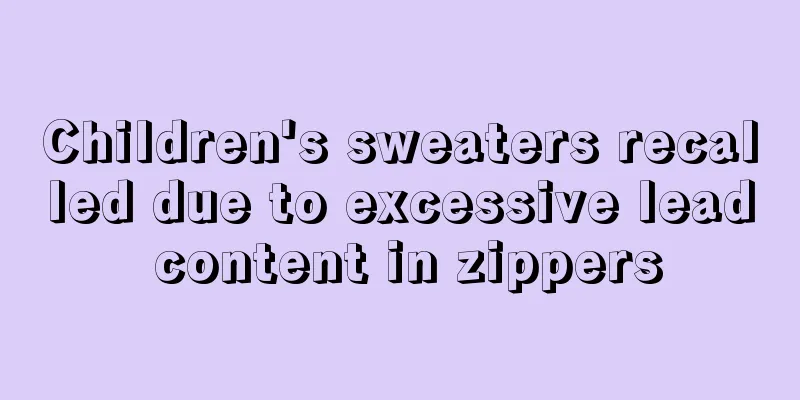Exaggerating negative reviews! Amazon's AI function becomes a "headache" for sellers

|
Exaggerating negative reviews! Amazon's AI function becomes a "headache" for sellers
For consumers, product reviews have always been an important part of Amazon online shopping. To a certain extent, product reviews determine whether consumers will place an order for a product.
However, the more sales a product has, the more reviews it generally has. In order to reduce the workload of consumers looking through reviews, Amazon launched the AI review summary feature in August this year. This feature can summarize a large number of product reviews into a short summary.
However, like all generative AI, this feature is not perfect. In some cases, the summary does not accurately describe the product, and sometimes even emphasizes the negative user reviews.
In the eyes of many sellers, what’s worse is that these things happened on the eve of the holiday shopping season, casting a shadow over the peak season that may already be hit by inflation.
Jon Elder, head of Amazon seller consulting firm Black Label Adviso , said that if a seller's product has a small number of negative reviews, it is unfair for AI to display the main content of its summary; the impact on sales is still uncertain, but it has already made sellers worried.
Some false reviews can be spotted by consumers at a glance. For example, a handstand machine sold on Amazon by home fitness company Teeter that can relieve back pain is described as "a table" in the summary by Amazon AI, which says that "customers like the table's sturdiness, adjustability, and pain relief." But some of them require you to click into the detailed reviews to avoid being misled by the summary. For example, for a Brass Birmingham board game with a rating of 4.7 stars and a price of $70, the summary of Amazon AI is only three sentences, and the last sentence is: "However, some customers have different opinions on ease of use."
However , among more than 500 user reviews, only 4 mentioned the usability of the product. Although they were negative reviews, they could be explained. As a result, less than 1% of negative reviews accounted for one-third of the AI-generated content. A similar situation occurred with another product , Penn tennis balls. Among the more than 4,300 reviews for this product, only 7 mentioned something like "having a strange smell". As a result, Amazon AI's content also included this as one-third of the summary. Users could only find that there were only a few similar reviews when they clicked on the keyword "smell". Regarding the problems with Amazon AI, Lesley Hensell, co-founder of Amazon consulting firm Riverbend Consulting, suggested that sellers provide feedback to Amazon's seller support department, and emphasized that she hopes someone will give and handle the feedback in a meaningful way, and there is no better way.
Lesley Hensell believes that in the long run, Amazon's AI review summary function will definitely be a major feature for buyers, but Amazon needs a process that allows sellers to more easily object to misleading review summaries. After all, technology is never perfect. Amazon AI summary and comment function Negative reviews are exaggerated |
Recommend
Thumbs up for Chinese products! Well-known Chinese brands are expanding to Southeast Asia, with orders increasing more than 20 times!
In recent years, under the wave of going overseas...
Good news! European delivery network from UK to EU restarts
Recently, Amazon stated that in order to help sel...
Attention! Amazon European FBA fees will increase...
The Spring Festival holiday has passed. As a cros...
After a huge loss of 4 billion, is Shenzhen Dama about to make a comeback?
There is new news about Youkeshu, which is in dee...
What is Xiangcheng Logistics? Xiangcheng Logistics Review, Features
Xiangcheng Logistics mainly engages in Amazon FBA...
Western European e-commerce growth exceeds expectations, reaching $660 billion in 2022!
According to eMarketer's survey statistics, s...
What is Qupital? Qupital Review, Features
Qupital (Qiupidao Limited) is a supply chain finan...
Shipments reached 10.32 million units! Another popular product infringed upon copyright, and some sellers’ accounts have been frozen
As a green means of transportation, balance bikes...
What is KING KERRY? KING KERRY Review, Features
Jinkaiyu International Freight (Beijing Jinkaiyu I...
Temu makes another move in Africa, is the e-commerce landscape about to change?
Even though it encountered obstacles in Southeast...
Failure! Tens of thousands of sellers have failed in this 800 billion market this year
According to foreign media reports, Alibaba and S...
What is Zhihuiya Patent Search? Zhihuiya Patent Search Review, Features
As a fast-growing innovative technology company, Z...
Arieldin is leaving? He responded: I am doing well at Lazada
Today, media reported that Liu Xiuyun (nickname E...
What is Vantree? Vantree Review, Features
<span data-docs-delta="[[20,{"gallery"...
The US resale market is expected to reach $77 billion in the next five years!
The resale market has developed rapidly in recent...









